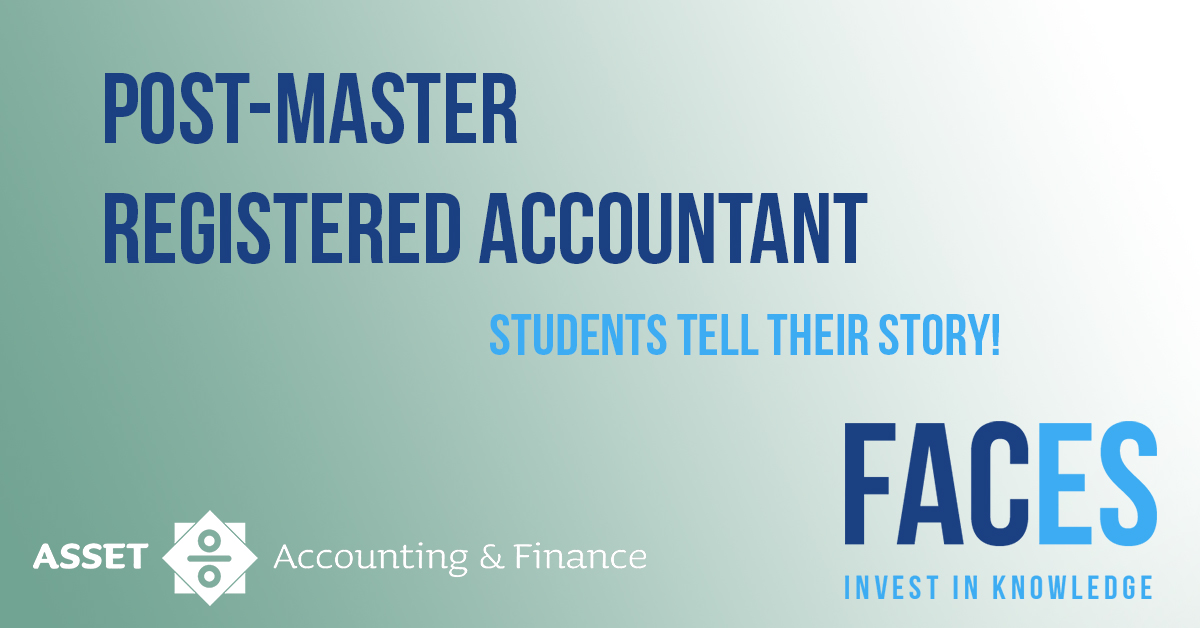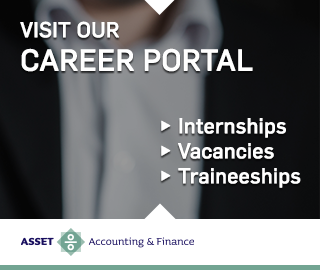It is one of the most reputable titles in the financial world: Registered Accountant. They appear in every branch and are essential for both legal and financial grounds. Almost everyone is familiar with the assurance part of the job, that involves auditing year reports etcetera. People who have a deeper understanding, know the accountant’s job has different aspects as well, such as advising. Few others are able to determine the current state of a company more accurately than an accountant. This, along with the large network created during visits, ensures that the job is a nice step towards higher management positions such as CFO.
To obtain this title, one has to accomplish a relevant master and the Post-Master Registered Accountant subsequently. This post master takes 2.5 years on average and is merely offered as part-time. The education is normally combined with an internship, since the second requirement is that the student has 3 years of working-experience. The market for internships is very favourable for students currently. Accounting firms welcome students with open arms and promise nice salaries, conditions and prospects, although the profession is famous for its high workload. To find out how students experience the Post-Master and the internship, we asked some for their opinion.
Stef van Nispen is a third year student and he almost completed his theoretical part. He is satisfied about the the education at Tilburg University and its quality. “The hard courses are not easy to pass, but the guidance is good in my opinion. The difficulty leads to extra gratification if you pass one.”
The difficulty of the courses is partially due to the poor connection from his prior education. Stef studied Business Economics and finished the master Accountancy afterwards. “We analyse many cases during the post master, something I have never practiced before. This is in contrast with HBO (University of applied science, red.), where cases are practiced more frequently.” This led to an additional deficiency course for him, causing his post master to take longer.
“It is my own responsibility to finish my tasks, but nobody cares whether I do this at half past nine in the morning or at ten o’clock at night.”
The poor connection contributed to the fact that Stef experienced the study as fairly heavy. Cases have to be handed in weekly and this often requires a lot of studying after I come home from work. “It took me some time to get used to this. I had a very relaxed time during my bachelor, being not many obligations at all. It is important to have a tight schedule nowadays. The balance between work and private is something that has to be guarded strictly, which is the hardest part. It requires a lot of discipline.” Now that Stef has worked at EY for some period, he does notice how flexible this employer is though. “It is my own responsibility to finish my tasks, but nobody cares whether I do this at half past nine in the morning or at ten o’clock at night.”
First year student Carlijn Oerlemans also emphasizes the importance of a tight planning: “It was a vast turnaround from studying to a fulltime job. You get used to working after a while, right when you get a load of study matter on top of it again. Discipline and planning are therefore key-elements.” She also enjoys enough flexibility at Deloitte, so she does not miss sport nights for example.
Carlijn confirms the lack of links with practice from her master, but she likes it that this link is there in the Post-Master. “It allows you to share your own experience and knowledge from the practice-oriented cases at work. This makes education interesting.
Stefan Stolwijk sees the study on Friday as early weekend and he likes it a lot. According to the second year student, the lectures’ content is comparable to that of the master Äccountancy. “It starts to get really interesting during the tutorials. People with practical experience teach us information that is related to real-life and that will be useful at work one day.” Stefan is also dissatisfied about the connection with his master, unfortunately. Yearly reports and journal entries were barely discussed. The Post-Master tries to fill this gap professionally with cases, presentations, papers and a practical training, resulting in a high workload. “Soon enough I started to realize that a proper planning is crucial to maintain the balance between private, work and study. The study pleases, the load not quite.”
Rutger Bloemenkamp is a first year student of the European version of the Post-Master. He agrees with the others on the high pressure. Nevertheless, he thinks the cases are properly spread over the months. Rutger is positive about the connection between the master and Post-Master Accountancy. He surely benefits from his international background, which he wants to maintain in the future. Not surprisingly, he is very pleased by the international aspects: “One nice thing about the European Post-Master is that we have one week of lectures in Bucharest and we can stay in Valencia for a week during the academic year. My portfolio is very international as well, with a large American multinational as my major client. The education is definitely in line with the clients I serve.”
Students are predominantly positive about the Post-Master for Registered Accountant, although they all experience a high workload. The Post-Master provides a proper preparation for practice, but the connection from previous educations is often not very good. The pace in which cases are discussed is high, but students are satisfied once they notice how fast they learn from this. The most important conclusion seems that time should be managed well and one can achieve great results with the right discipline. Audit firms expect something from you, but this is awarded with a lot of flexibility and chances for a beautiful future.

















